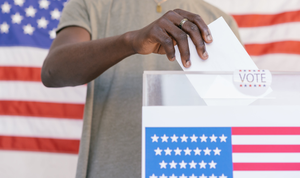America
Experts: Indian Ties Might Not Boost US Presidential Contenders Amid Bipartisan Support for India

July 29 :
With bipartisan backing for deeper cooperation with the South Asian nation to oppose an assertive China, experts said that the Indian links of certain U.S. presidential election aspirants likely do not add much value to ties. Even while Indians are proud of their achievements, Democratic Vice President Kamala Harris and Republican Donald Trump's running mate Usha Chilukuri Vance have hardly visited the birthplace of either father.
"That relationship enjoys bipartisan support and should not be affected," stated Harsh Vardhan Shringla, a former Indian ambassador to the United States, regardless of the political party in power in India. About the India links, he stated, "It can only benefit," and went on to say, "(It) cannot be affected adversely." An anonymous Indian government official stated that the outcome of the election and the candidate's Indian heritage will have no bearing on relations with New Delhi because both major parties in Washington perceive such relationships favourably.
In an effort to reduce New Delhi's reliance on Russian weaponry and to pose a regional challenge to China, both President Biden and his predecessor, Trump, courted India. Republicans J.D. Vance and Harris's wife, Usha, both have family ties to southern India. Vance is running for vice president. The academic family to which Vance belongs is well-known.
The people in Harris's mother's hometown of Thulasendrapuram look up to her as an inspiration, and she has won over enough delegates to become the Democratic nominee. According to J. Sudhakar, a local of the hamlet where Harris's maternal grandfather was born, she has shown that young ladies who were once restricted to the house may do great things and become famous in the world's leading nation.
How big an achievement is that? Although her family eventually settled in Chennai, a city around 320 km (200 miles) away from the village of about 2,000 people, Harris, who went there when she was five years old, remembers going on walks with her grandpa on the beach of that city.
Yet, ever since becoming the vice president of the United States, she has not returned. According to shopkeeper G. Manikandan, the villagers were hoping for a visit, a statement, or even just a passing reference to their town, but none of that materialized. He went on to say that they will have a huge party to welcome her and celebrate her victory.



































